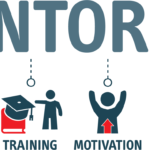Dr. Susan G. Weinberger
A front-page article in the Harvard Business Review in 1978 stated that everyone who makes it has a mentor. Hopefully many of us can identify at least one person that has served in that role for us. In fact, I believe that in order to be successful, we need to be surrounded by multiple mentors.
Some people have the ability to seek out and engage mentors on their own. Being able to identify someone in the workplace, for example that might be willing to share expertise and advice can be very advantageous. Most likely that person would be honored to assist if asked. Shadowing a colleague on the job has great benefits. The same holds true in educational settings. When a student seeks out a peer or professor for guidance, the experience is enriching. There is even a program called Youth-initiated mentoring. Young people are taught the skills for how to identify and recruit adults to serve as their mentors.
Yet some people would never find a mentor unless we deliberately match them. How does one go about finding a mentor when that is the case? For adults, there are many professional organizations that serve to match adults with experts in their fields. Alumni Associations of sororities and fraternities have networks to match people with like interests. More recently, many professional women’s organizations are establishing initiatives so that members can provide mentoring to others. The local Chamber of Commerce would know what business organizations in their community are available to offer free mentoring services.
For youth, finding a mentor can be done through a very successful formal process. Whether a school or school district wants to establish a program or a parent wants to find a mentor for their child, an outstanding resource, MENTOR/National Mentoring Partnership located in Boston, MA has a database of programs throughout the country that provide one-to-one or group mentoring in schools or community-based settings. These programs must demonstrate that they follow the Elements of Effective Practice, the quality assurance standards that govern mentoring programs. In order to ensure maximum protection, standards include mentor and mentee recruitment, screening, training, matching, supervision and program evaluation. In order to find a mentoring program in your community, go on MENTOR’s website, mentoring.org and insert your zip code in the “looking for a mentor” section. This will begin the process.
Dr. Susan G. Wienberger


